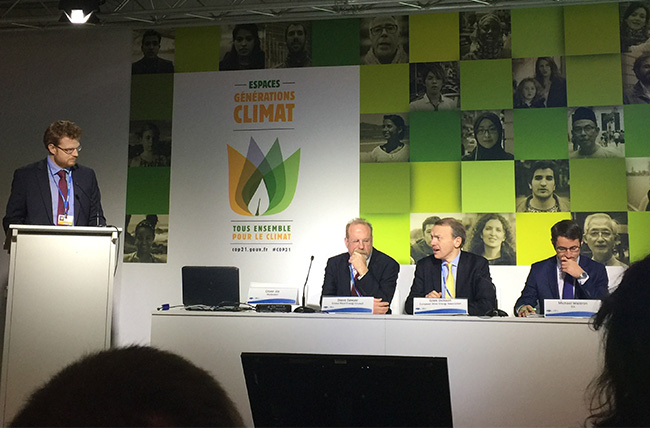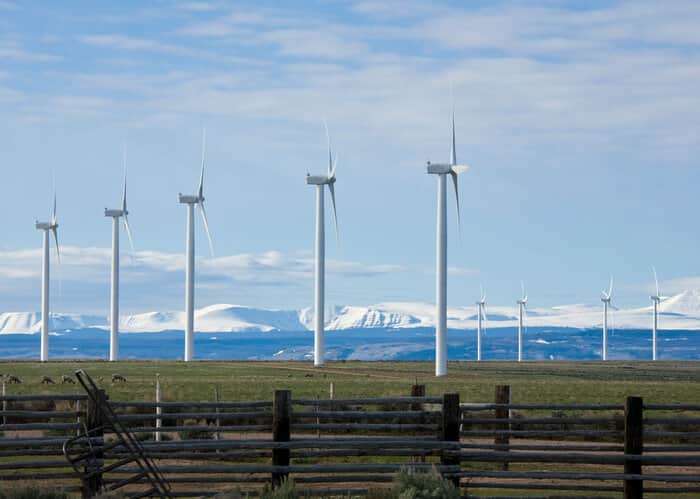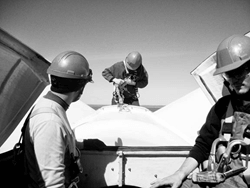 The European Wind Energy Association (EWEA) hosted a side event at the United Nations Climate Change Conference (COP21) in Paris to highlight the economic benefits of wind energy in Europe and across the world.
The European Wind Energy Association (EWEA) hosted a side event at the United Nations Climate Change Conference (COP21) in Paris to highlight the economic benefits of wind energy in Europe and across the world.
The two-hour session included dual panels made up of industry and policy experts. In the first panel session, Giles Dickson, CEO of EWEA; Steve Sawyer, secretary general of the Global Wind Energy Council (GWEC); and Michael Waldron of the International Energy Agency (IEA) debated the merits of wind power and the progress toward a world powered 100% by renewables.
According to EWEA, Dickson highlighted the cost argument, citing numbers from Bloomberg New Energy Finance showing that onshore wind power is winning the price battle with other technologies – such as gas and coal – based on the levelized cost of electricity.
‘Last year, wind power installed more than gas and coal combined in the EU," he said. "Europe's energy and economic transition is under way. Now politicians must decide whether to accelerate this transition or drag their heels, which would damage investments and job creation.’
GWEC's Sawyer discussed the wind industry beyond Europe's borders and highlighted key markets in Mexico, Brazil and South Africa as countries where wind energy will have a significant role to play in the coming years.
After two opening statements, it was the turn of the IEA. Waldron presented the organization's findings in its Medium-Term Renewable Energy Market Report 2015. Waldron said onshore wind leads global renewable growth, accounting for over one-third of the renewable capacity and generation increase. Furthermore, Waldron said offshore wind should more than triple by 2020, with expected decreases in generation costs and additions from a large project pipeline in Europe.
EWEA says the second panel of the day focused on the Intended Nationally Determined Contributions and on turning country commitments into investment programs for the future. RES Group Commercial Director Marco Perona and Geraldine Ang of the Organization for Economic Cooperation and Development (OECD) participated in the session and gave their insights into how emerging markets are shaping up.
Nations such as China, India and Brazil all submitted national commitments ahead of the climate showdown in Paris, with many setting ambitious new targets for renewables. According to EWEA, India has pledged to install 60 GW of wind farms by 2022, up from 22 GW today; Turkey has committed to 16 GW of wind by 2030; and China is pushing for 200 GW of wind by the end of the decade.
Marco Perona of RES said that the EU risks losing its leadership on renewable energy technology if it does not put in place stable and long-term policy frameworks that lay the groundwork for the deployment of wind energy.
OCED's Ang echoed Perona's sentiments on stable public policies, adding that visibility for investors is key to creating jobs and attracting capital.



